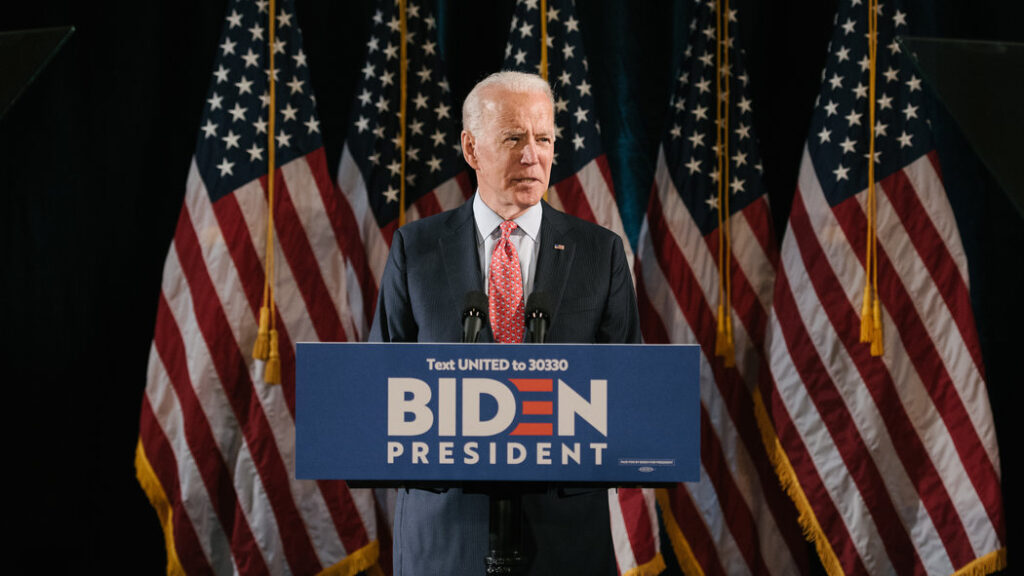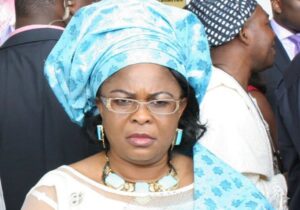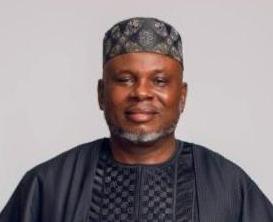All you need to know about Super Tuesday in the U.S. election
March 5 is Super Tuesday, which is one of the busiest days in the United States election calendar.
Super Tuesday takes place on March 5, with millions of voters expected to cast their ballots in presidential primaries and caucuses across more than a dozen states.
Also on the ballot will be races for both chambers of the US Congress — the House of Representatives and Senate — as well as other contests.
President Joe Biden faces little opposition on the Democratic side and is all but guaranteed to be confirmed as the party’s nominee.
In the race for the Republican presidential nomination, however, Super Tuesday could spell the end of the road for former United Nations Ambassador Nikki Haley.
She is the last major candidate still challenging the frontrunner, former President Donald Trump, but her campaign has failed to make a dent in Trump’s iron-clad grip on the party.
READ ALSO
Nikki Haley halts Trump’s unbeaten run, defeats him in Washington DC
Here’s all you need to know about Super Tuesday, its history and its biggest battlegrounds this year.
What is Super Tuesday?
Super Tuesday is the day when the largest number of states hold their presidential primaries and caucuses.
Those state-level races help candidates from the two major political groups — the Democrats and the Republicans — gather the delegates they need to earn their party’s nods. Delegates ultimately represent their states at a party convention, where they cast votes for the nominee based on the primary and caucus results.
During this year’s Super Tuesday races, 874 Republican delegates will be up for grabs — or about 36 percent of all those available. A candidate needs at least 1,215 of 2,429 total delegates to win the Republican nomination.
For Democrats, 1,439 of the party’s 3,979 total delegates will be at stake on Tuesday.
When is Super Tuesday?
This year, it falls on Tuesday, March 5.
Which US states are voting on Super Tuesday?
Fifteen US states are holding votes on Super Tuesday:
Alabama
Alaska
Arkansas
California
Colorado
Maine
Massachusetts
Minnesota
North Carolina
Oklahoma
Tennessee
Texas
Utah
Vermont
Virginia
The territory of American Samoa will also be voting.
The results of the Democratic caucuses in Iowa, which are being held via mail-in ballot, are also expected on March 5.
Where does the phrase “Super Tuesday” come from?
The origins of the phrase are a bit murky, but Pew Research Center editor Drew DeSilver says it dates back to at least 1976. At the time, though, “Super Tuesday” referred to the last major primaries in June: California, New York and Ohio.
But most experts agree that, as DeSilver writes, “Super Tuesday was born, more or less as we know it today”, in 1988. That’s when a group of Democrats in southern US states decided to “front-load” the presidential primary process after Republican President Ronald Reagan cruised to victory four years earlier over Democratic White House hopeful Walter Mondale.
Their thinking was that by holding their votes on the same day, early in the election cycle, they could better influence their party’s pick — and ensure that the eventual nominee can succeed in the American South.
The 1988 effort didn’t work, but Super Tuesday remains the day that most US states hold their votes.
Why does Super Tuesday matter?
Super Tuesday matters because about a third of the delegates will be allocated by each party to decide their respective presidential nominee.
A strong showing can effectively give a presidential campaign a shot in the arm, helping White House hopefuls secure more financial contributions and build momentum. But a poor result can bring a campaign to a screeching halt.
“Because there are so many states holding contests simultaneously, candidates need to be really well funded, well organised and have good name recognition to do well across the board on Super Tuesday,” Caitlin Jewitt, an associate professor of political science at Virginia Tech, told Al Jazeera.
“If we have a clear frontrunner going into Super Tuesday, we often see that — after Super Tuesday — that candidate is by far the frontrunner and many others drop out of the race.”
Jewitt pointed to the 2020 Democratic race as one example of how Super Tuesday can jump-start a campaign. That year, Biden delivered a strong showing on Super Tuesday after a slow start: He won 10 states. The race then transformed into a two-man competition between him and Senator Bernie Sanders.
Successful Republican candidates have likewise enjoyed a boost from Super Tuesday. Jewitt noted that, in 2016, Texas Senator Ted Cruz did not do as well as he had hoped on Super Tuesday, while Trump did better than expected. He went on to win the presidency that year.
“So we see Trump start to gain momentum from that,” Jewitt said.
What can we expect this year in the presidential primary contests?
For Haley, the ex-UN ambassador, a poor showing could augur the end of her campaign for the 2024 Republican nomination. Polls show her trailing Trump in all of the Republican contests on Super Tuesday.
“It’s not going to be so super,” Jewitt said of the lopsided races.
“It’s much less important this year. It may be important because it might be Haley’s sort of last stand, but other than that, it looks inevitable that Joe Biden and Donald Trump will gain their respective nominations, and so we don’t expect very many surprises on Super Tuesday.”
Haley — who has lost to Trump by a sizeable margin in all the early state contests so far — said she planned to stay in the race until at least Super Tuesday. Her plans beyond that are unclear.
“I’m not giving up this fight when a majority of Americans disapprove of both Donald Trump and Joe Biden,” she said after losing a February 24 primary in her home state of South Carolina.
Will there be more on the ballot than the presidential primary races?
Yes. Americans will also be voting in a number of what are called “down-ballot” races on Super Tuesday.
They include contests to fill seats in the Senate and House of Representatives, as well as in state legislatures.
Races for lower-level posts such as prosecutors, judges, city councillors and school board members will also be held.
What are some Super Tuesday races to watch?
One of the most anticipated contests is happening in California. Voters there will pick two candidates to go head-to-head in November to fill a vacant Senate seat held for decades by Dianne Feinstein, who died in September.
A recent poll showed Democratic Congressman Adam Schiff leading with 28 percent support in the primary race, in which candidates of any party can compete. Republican and former baseball player Steve Garvey had 22 percent, while Democratic Representatives Katie Porter and Barbara Lee had 16 and 9 percent, respectively.
In Texas, a slew of Democratic candidates are competing for a chance to challenge Republican Ted Cruz for his Senate seat. A poll released in early February by the University of Houston showed Congressman Colin Allred with 40 percent support among Democratic primary voters, compared with 12 percent for his closest challenger, Texas State Senator Roland Gutierrez.
“But whether it’s Allred or Gutierrez in the general election against Ted Cruz, Cruz remains a very strong favorite,” Rice University political scientist Mark Jones, who co-authored the report, said in a statement.
Here are some other races to watch:
In Minnesota, Muslim community leaders are urging voters to choose “uncommitted” on their Democratic primary ballots in protest of Biden’s support for Israel amid the Gaza war. A similar campaign in Michigan garnered more than 101,000 votes on February 27.
In North Carolina, Democrats and Republicans are holding primaries to pick their respective candidate for governor. Far-right Lieutenant Governor Mark Robinson is leading and has Trump’s endorsement, while Josh Stein, the state attorney general, is polling on top for the Democrats.
In Alabama, a large number of candidates are competing to represent a new congressional district. Created after the US Supreme Court approved a new electoral map, the 2nd District has gone from a Republican stronghold to one where Democrats have a chance, local media have reported.
When will we get the Super Tuesday results?
The results will begin to trickle in once polls close in each state and territory. Typically, that is around 7pm local time or later.
Source: Aljazeera










More Stories
Massive protest against Trump hots up in major U.S. cities
Tinubu considers Fani-Kayode, others for ambassadorial appointments
NBA intervenes, as detention of 15 domestic aides accused of theft from ex-First Lady Patience Jonathan, lingers